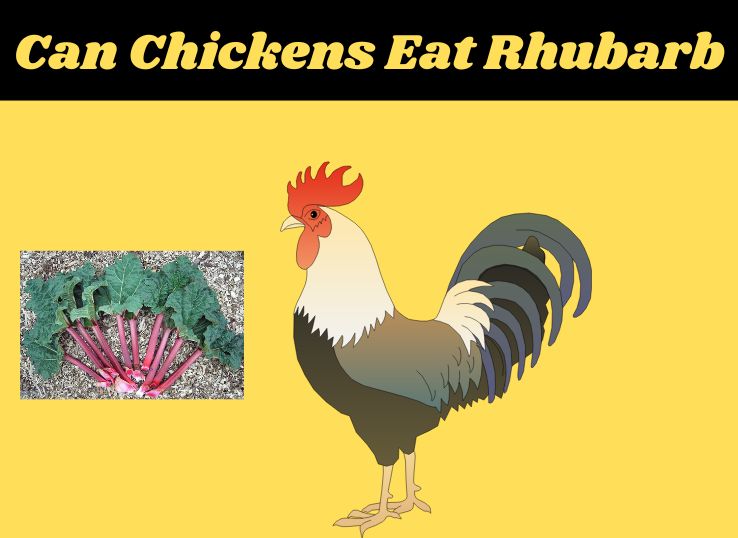
Can Chickens Eat Rhubarb(Guideline) ZPoultry
No, chickens can not eat acorns as they are toxic. Acorns, oak leaves, buds and twigs should all be avoided. Young leaves and freshly fallen acorns have the most tannins and are therefore the most toxic to chickens. Tannins (tannic acid) can cause damage to a chicken's gastrointestinal tract and kidneys. Source.
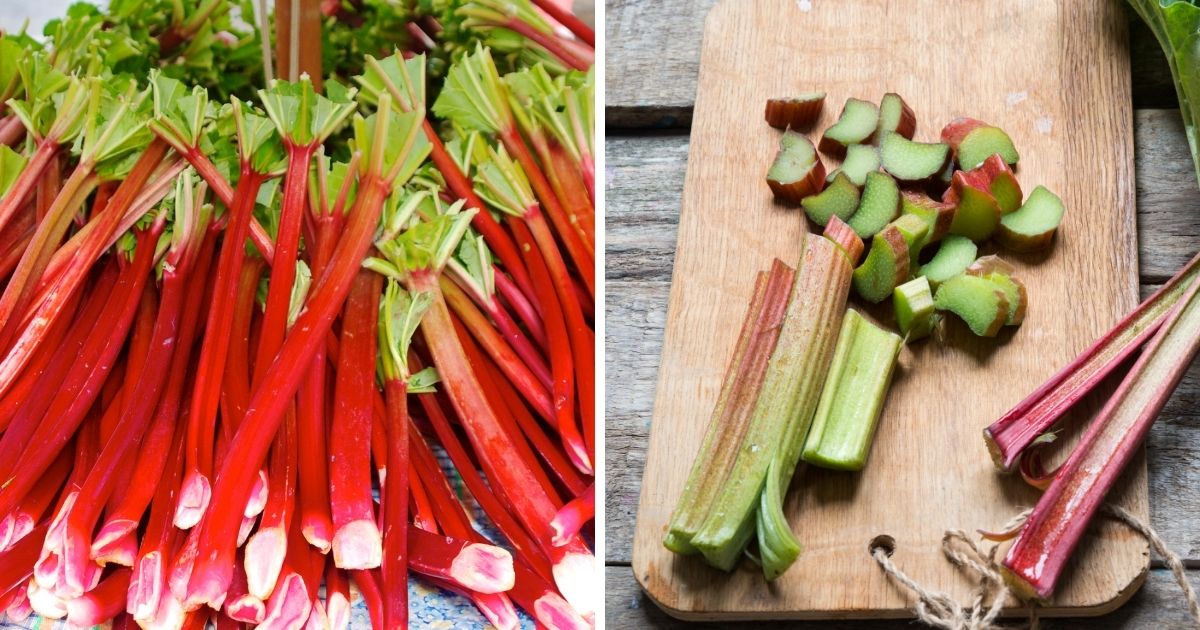
Can Chickens Eat Rhubarb? (Leaves Are Poisonous!) Chicken & Chicks Info
Find the deal you deserve on eBay. Discover discounts from sellers across the globe. Try the eBay way-getting what you want doesn't have to be a splurge. Browse Rhubarb!
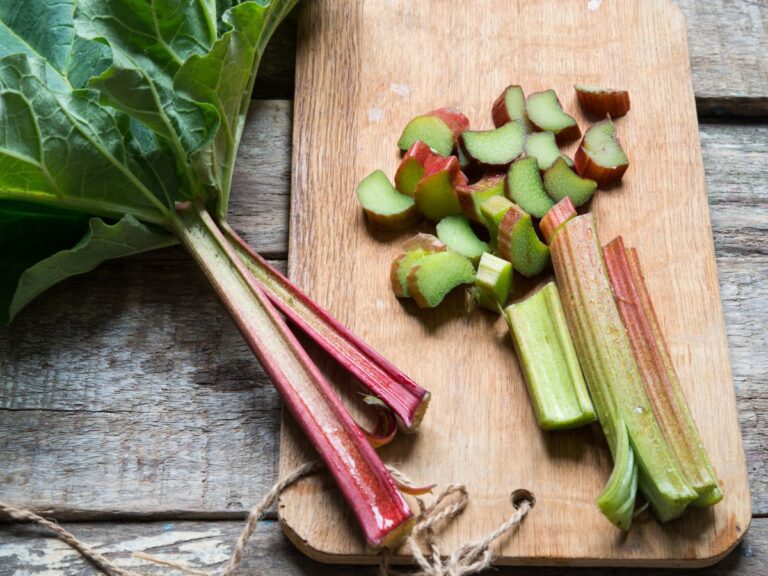
Can Chickens Eat Rhubarb? (Leaves Are Poisonous!) Chicken & Chicks Info
Rhubarb is an excellent source of vitamins A, C, and K, and the B-complex family and minerals like calcium, magnesium, potassium, and dietary fiber. It also contains natural sugars, which can help boost energy for laying hens. Rhubarb is also a great source of dietary fiber which can help promote digestive health and help keep the chickens.
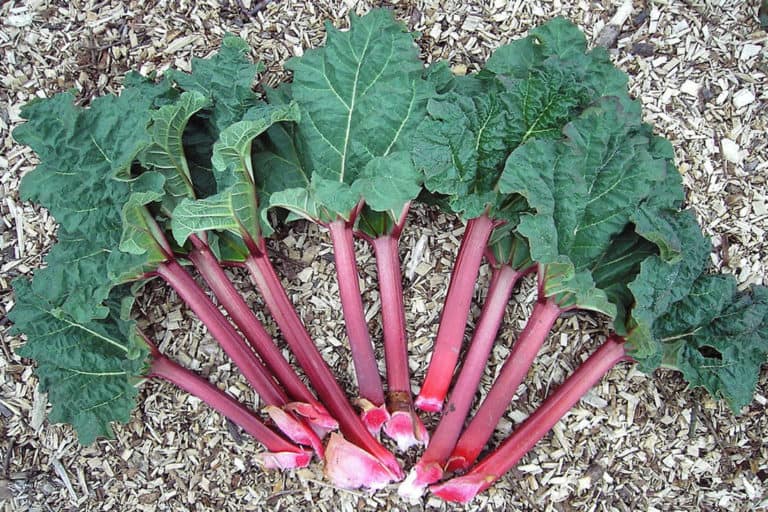
Can Chickens Eat Rhubarb? (Nutrition, Benefits & Feeding Tips)
Here are some general guidelines for how much rhubarb chickens can eat safely: Raw Rhubarb Stalks: A few bite-sized pieces 2-3 times per week at most; Cooked Rhubarb Stalks: 1-2 whole stalks, 2-3 times per week; Rhubarb Leaves: None, avoid entirely; Rhubarb Flowers: Unlimited; Rhubarb Seeds: Just a few seeds per chicken each time

Can Chickens Eat Rhubarb? The Hen's Loft Chicken eating, Canned chicken, Rhubarb
Also yes. Rhubarbs contain oxalic acid, a toxin that can be poisonous to chickens. It is found in high quantities in Rhubarb leaves and can potentially kill your chickens. Resultantly, the leaves of this vegetable are a no-go for the chickens. But, aside from the leaves, rhubarb stalks are safe for consumption.

Is Rhubarb Poisonous To Chickens? (Will it Make Them Sick?) The Hen's Loft
Conclusion. Rhubarb stalks, in moderation, are safe for chickens to eat. Rhubarb leaves, however, are unhealthy due to their high oxalic acid content. The chickens should be treated immediately with Epsom Salt Flush & Molasses Flush if they ingest any rhubarb and become poisoned.

Can chickens eat rhubarb? *raw/cooked*
By Nick 4 March, 2022. Yes, chickens can eat rhubarb, but only in moderation. They can eat both the leaves and the stalks. Although rhubarb contains toxins, they most probably won't die from eating some rhubarb once. There are, however, some caveats worth noting. Rhubarb is not a good food source for chickens, and they should especially avoid.
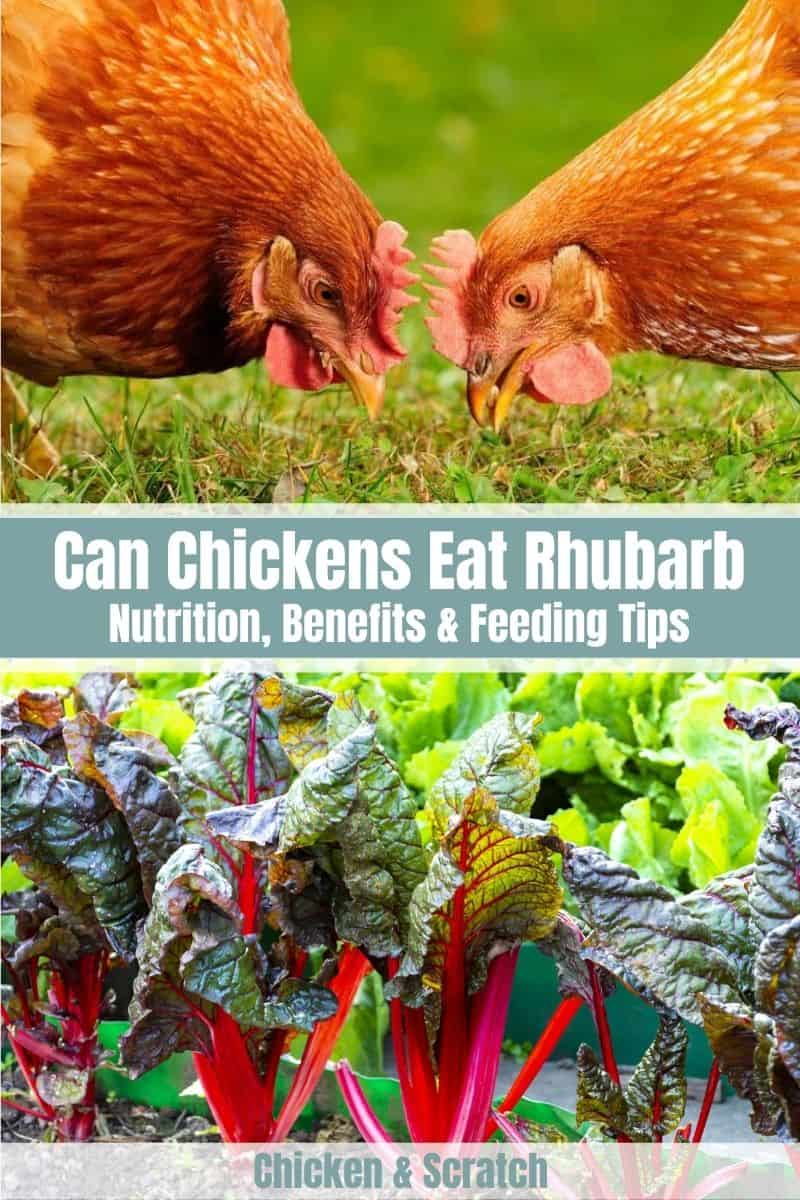
Can Chickens Eat Rhubarb? (Nutrition, Benefits & Feeding Tips)
Yes, rhubarb leaves can be toxic to chickens due to their high levels of oxalic acid. Oxalic acid causes kidney damage and other health problems, and in severe cases, it can be fatal. It's essential to keep rhubarb plants away from chickens. If your chickens intake them in large amounts, it would be risky. Make sure that they don't have.

Can Chickens Eat Rhubarb? (Leaves Are Poisonous!) Chicken & Chicks Info
The toxicity of rhubarb leaves is typically not immediate in the smaller amounts of rhubarb our chickens eat. Rhubarb has a very high content of oxalic acid. What it does is bonds calcium in the blood to calcium oxalic which can accumulate in the chickens system. This accumulation can lead to the formation of kidney stones and kidney failure.
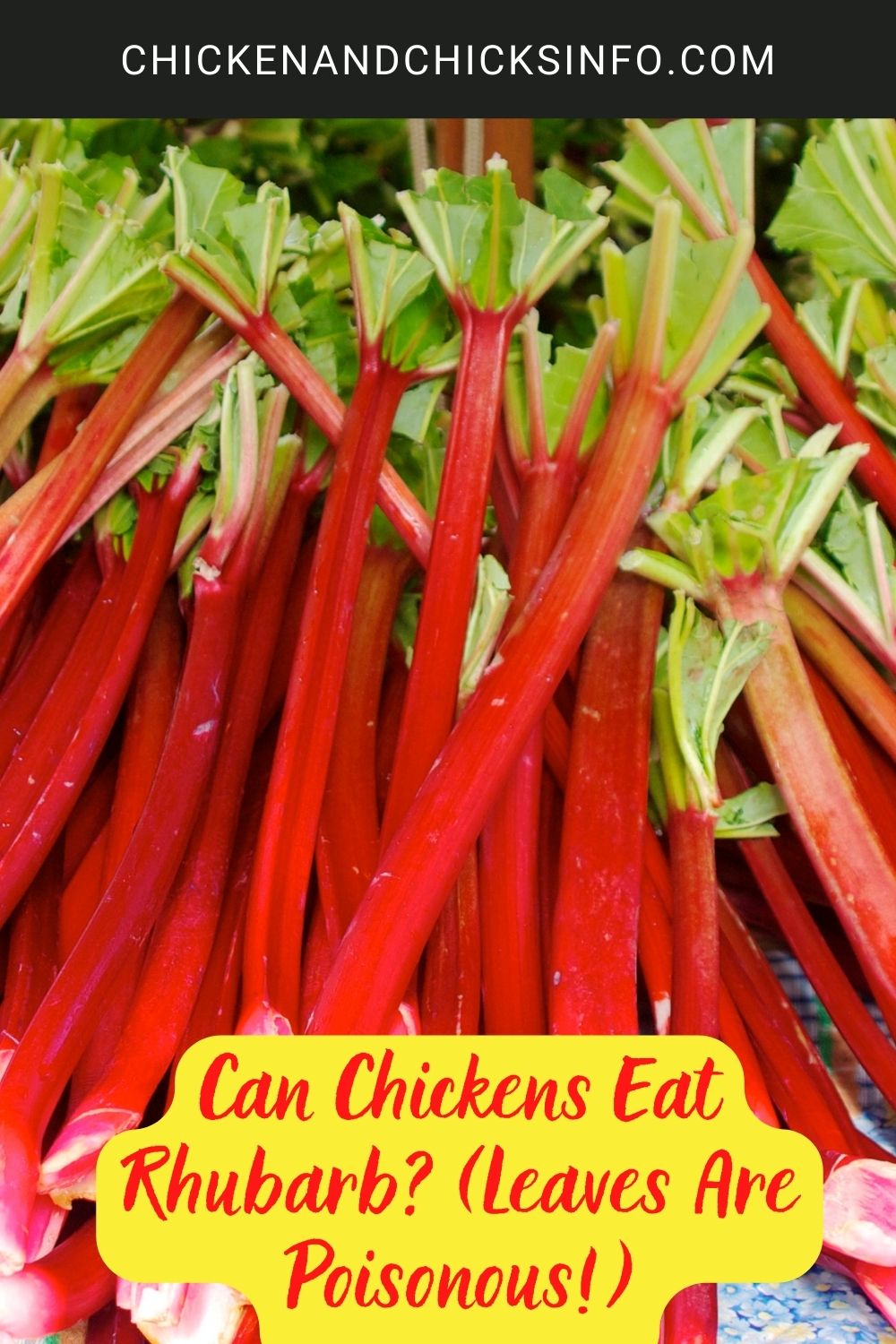
Can Chickens Eat Rhubarb? (Leaves Are Poisonous!) Chicken & Chicks Info
Humans can eat up to 2 kilograms to 4 kilograms of rhubarb before it gets sick. However, chickens are extra sensitive that a fraction of rhubarb is lethal to them. It can cause them diarrhea, hemorrhages, tremors, increased salivation, and even jaundice. Yes, chickens can get jaundice, too. You can quickly notice the effects of eating rhubarb.

Can Chickens Eat Rhubarb? (Nutrition, Benefits & Feeding Tips)
No, the leaves of the rhubarb plant contain oxalic acid. This compound is poisonous to both us and chickens, and when digested in large amounts it'll cause kidney failure and death. There are a number of other common garden plants that are poisonous to chickens. Avoid azaleas, foxgloves, lobelias, nightshades, and yew.
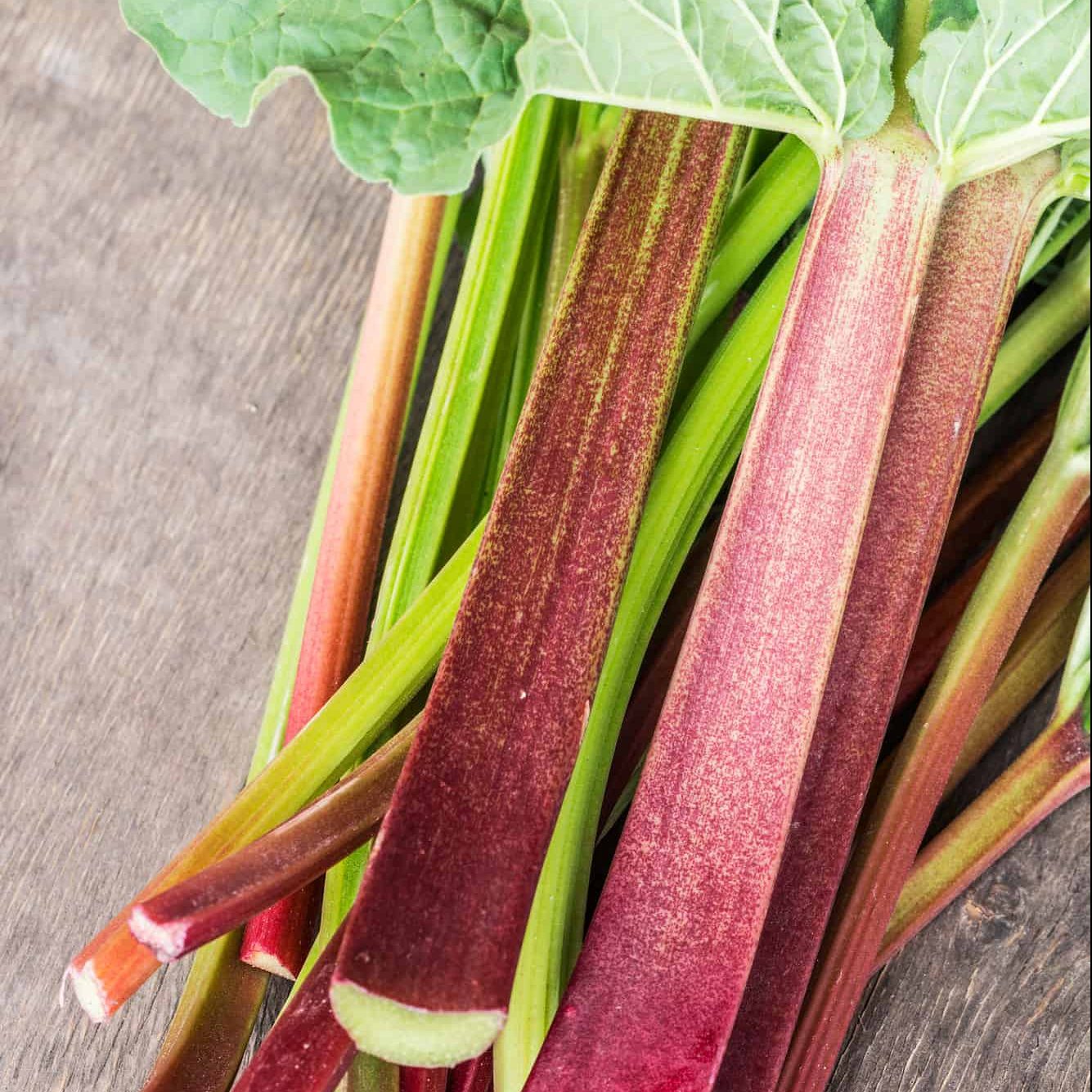
Can Chickens Eat Rhubarb? Mranimal Farm
Yes, chickens love to eat rhubarb, but they are only allowed to eat the stalks since the leaves and other parts are poisonous to chickens and other types of birds; even for us humans, it can be toxic. This is because it contains oxalic acid, which is extremely dangerous for animals. You can mix the rhubarb with the chicken's feed and always.

Can Chickens Eat Rhubarb? Separating Myth from Fact Animals Farm Guide
Chickens can eat rhubarb, but there are a few things to keep in mind. First, the leaves of the plant are toxic to chickens (and other animals), so make sure they only eat the stalks. Second, rhubarb is high in oxalic acid, which can lead to health problems if chickens eat too much of it. For these reasons, it's best to give chickens only.

Can Chickens Eat Rhubarb? Separating Myth from Fact Animals Farm Guide
Chickens who ingest an excessive amount of rhubarb may develop diarrhea, vomiting, and difficulty breathing (which could lead to anemia). If left untreated for too long, this condition can lead to muscular paralysis or respiratory failure. Finally, kidney failure may occur as a result of a high intake of oxalic acid—a component of rhubarb.
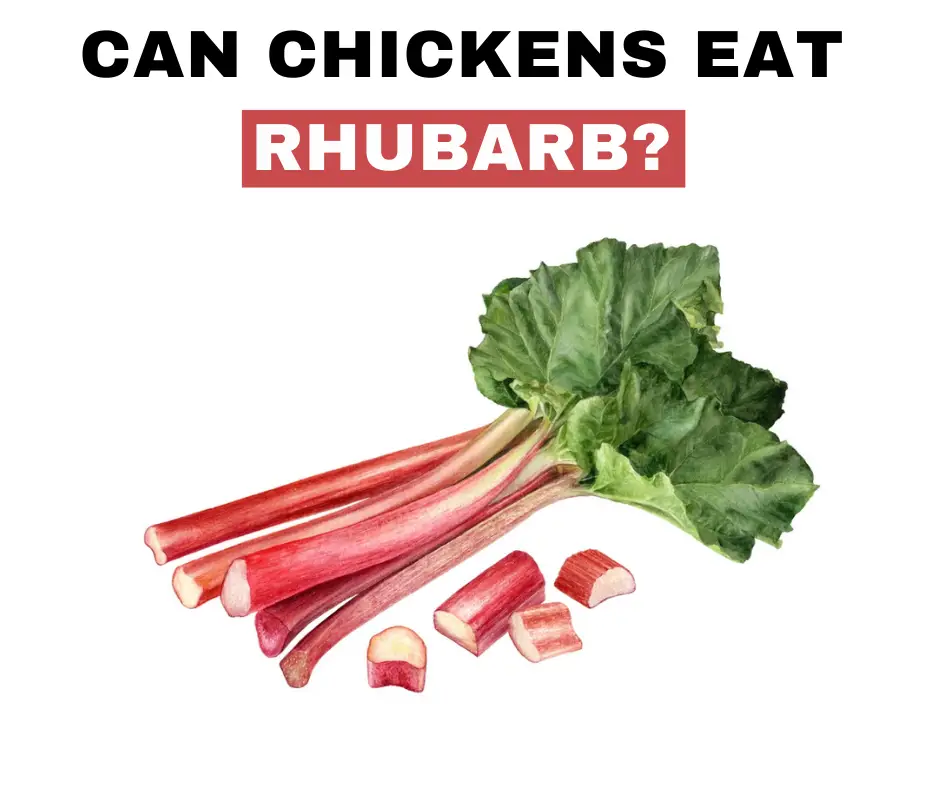
Can Chickens eat rhubarb — Types of Chicken
Rhubarb leaves and roots contain a compound called oxalic acid, which can be harmful to chickens if ingested in large quantities. It can lead to digestive issues and even kidney damage. Therefore, it is important to ensure that your chickens do not have access to rhubarb plants or any parts of the plant.
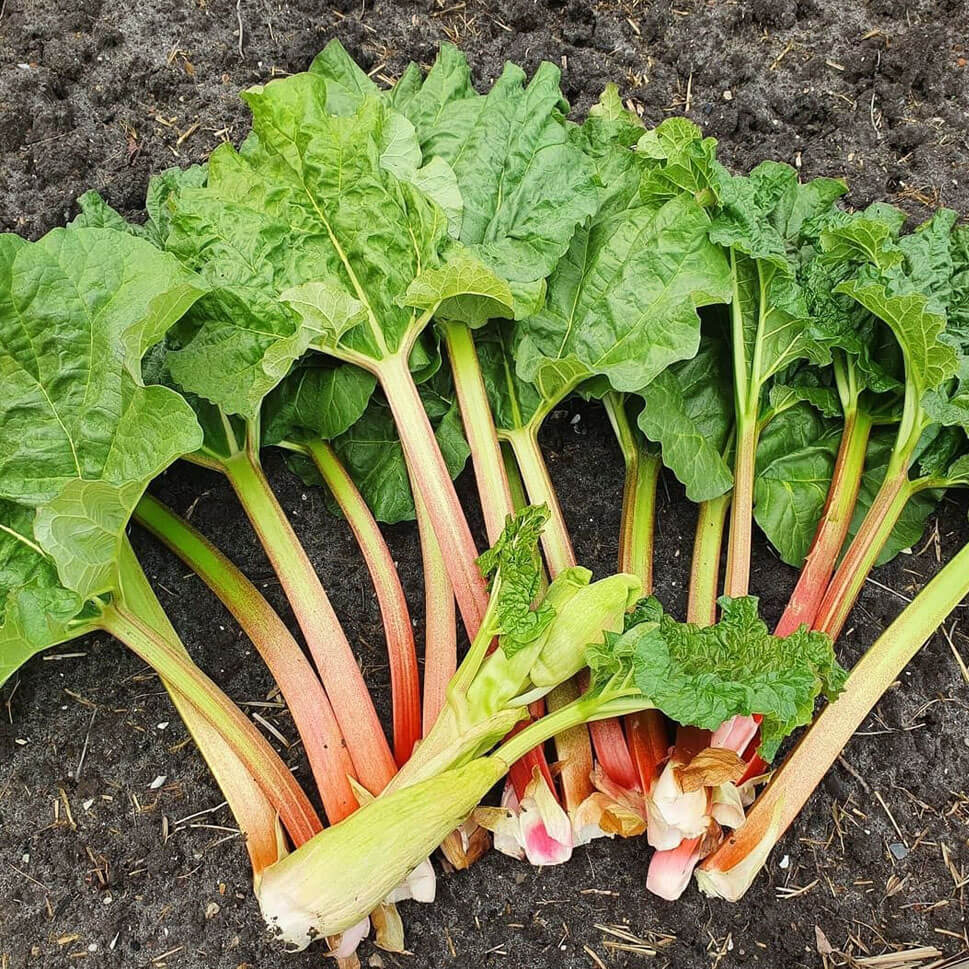
Can Chickens Eat Rhubarb? Chicken Fans
Pros: Nutrient Content: Rhubarb leaves do contain vitamins, minerals, fiber, and antioxidants that could benefit chickens if it weren't for their toxic oxalic acid content. Cons: Oxalic Acid Toxicity: The high oxalic acid content in rhubarb leaves can lead to severe health problems and even death in chickens. Reduced Calcium Absorption.